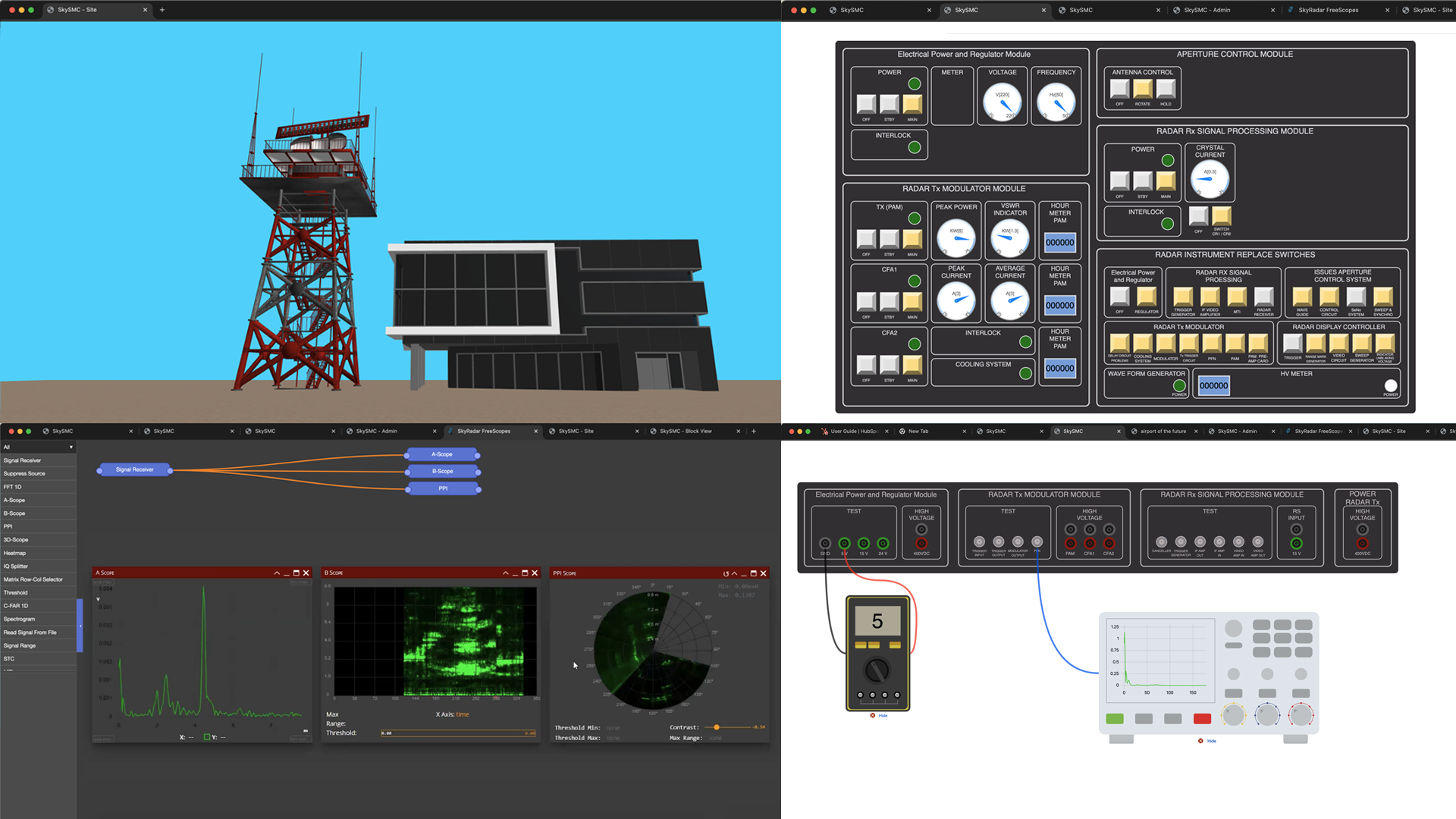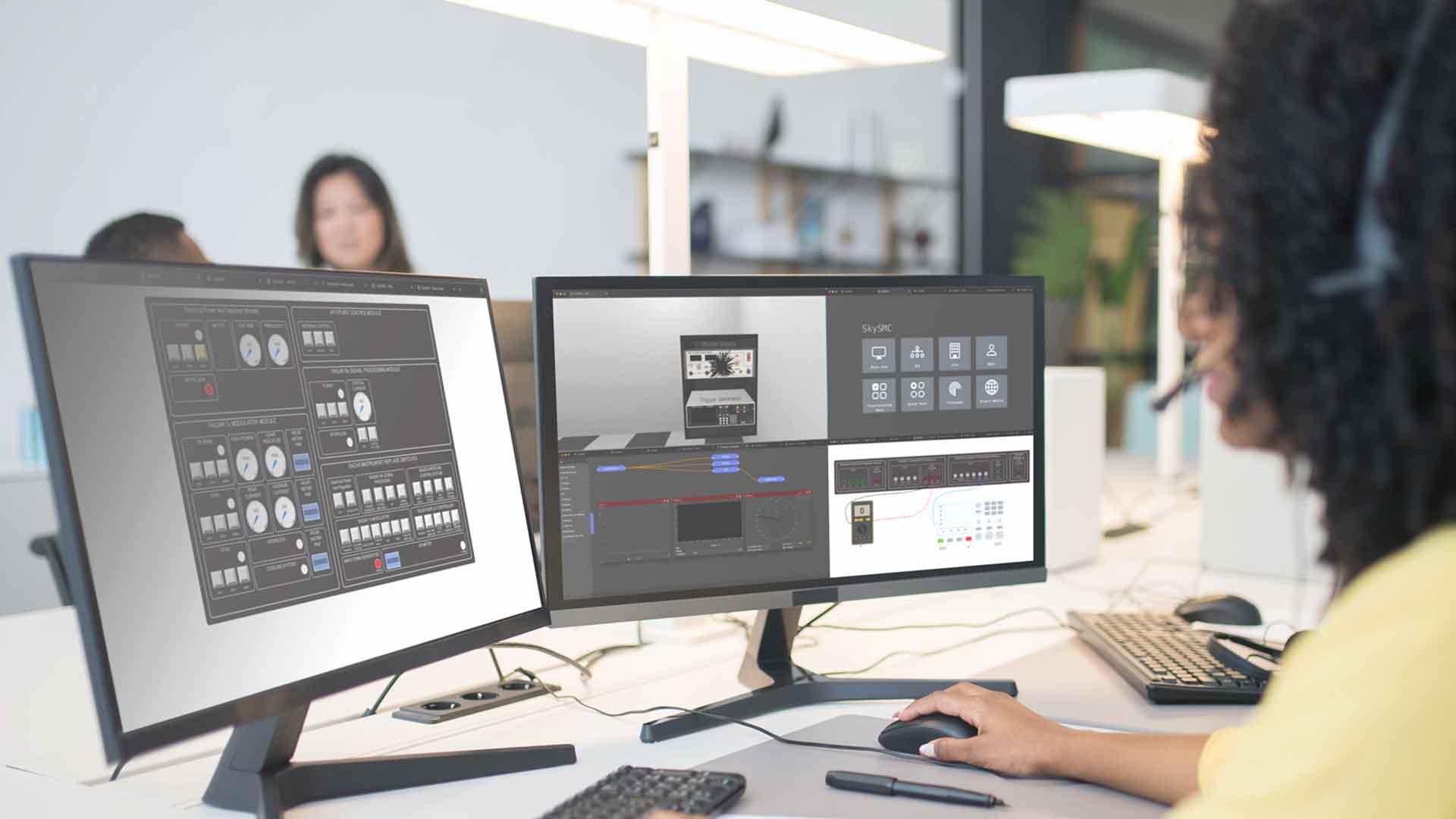In Air Traffic Safety Electronics Personnel (ATSEP) training, SkyRadar's Pedagogical Digital Twin presents a innovative approach by creating virtual replicas of air traffic control systems. This innovation is helpful for ATSEP, aligning with the EASA Easy Access Rules and ICAO Doc 10057. The digital twin technology facilitates a risk-free, real-time interactive learning environment, enabling simultaneous education for multiple users, regardless of their pace, level, or location.
Merging the digital and physical worlds, the Pedagogical Digital Twin by SkyRadar transforms ATSEP training. This virtual world, centered around SkySMC, enables learners to interact with air traffic control systems in a safe, controlled environment. Such hands-on engagement is critical for understanding complex systems, exceeding traditional methods that often rely on theoretical instruction. By incorporating real-time data and virtualizing various components, SkyRadar enhances the learning experience, making it more effective and accessible.

Fundamentals of Digital Twin in ATSEP Training
Digital twins serve as dynamic, interactive models that mirror real-world air traffic control systems. Key principles include:
- Data Integration: Seamless incorporation of live data, including radar information, into the digital twin, enhancing realism and learning impact.
- Modeling and Simulation: Virtualizing infrastructure, like servers and networks, and simulating hardware-based subsystems to convey complex concepts in an understandable manner.
- Real-Time Monitoring and Control: Allowing trainees to observe and manage system operations virtually, fostering a deep understanding of their functionality and maintenance.
- Predictive Analytics: Utilizing virtual scenarios to anticipate challenges and solutions, preparing ATSEP trainees for a wide range of operational situations.
Technological Underpinnings
SkyRadar's digital twin leverages virtualization, simulation, and virtual reality, following EUROCONTROL's fostered "Next Gen" design of service oriented archtectures. This integration provides a comprehensive, practical learning world. The use of many protocoals like SNMP, MQTT, or ASTERIX for easy live data inclusion ensures that the training environment is as close to real-world operations as possible, making theoretical knowledge directly applicable.
Applications Across ATSEP Training
SkyRadar's digital twin innovates and enables applied ATSEP training across communication (COM), surveillance (SUR), data processing (DPR), and navigation (NAV) fields. It includes virtual representations of systems and subsystems, enabling practical training on operational procedures and troubleshooting. This approach significantly enhances the trainees' ability to apply, analyze, evaluate, and synthesize information, achieving higher levels of learning taxonomy.

Next Steps
SkyRadar's Pedagogical Digital Twin represents a significant advancement in ATSEP training, offering an immersive, interactive, and comprehensive learning experience. By replicating and virtualizing real-world systems and processes, it prepares ATSEP trainees for the complexities of ATM systems, marking a new era of efficiency, innovation, and preparedness in the field. Embracing this technological shift is essential for developing proficient ATSEP personnel, ready to meet the demands of modern air traffic management.
Let's talk
Contact us to discuss a possible supply of our Digital Twin solution packages in your training center. it can be installed locally or provided as-a-service. Just call. Calls are non binding and will definitely help shaping your vision for your ATSEP training infrastructure.
Talk to you soon and stay tuned!
References
- THE ROLE OF DIGITAL TWIN IN THE INDUSTRY AUTHOR (2024), by Precious Damola and Agboola Miracle




